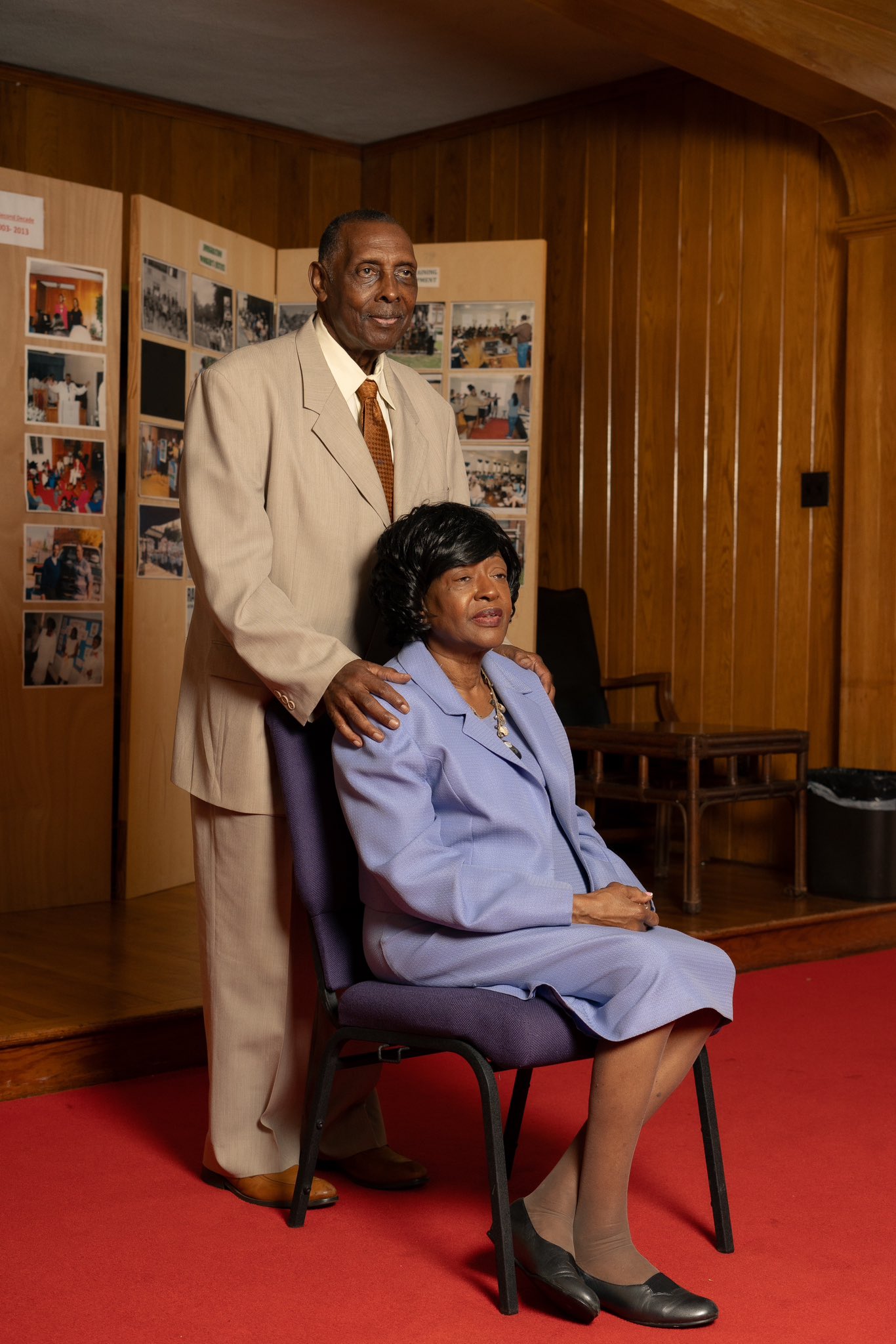
N.C. A&T Joins NCShare Partnership, Enhances Computing and Data Modeling Capacity
04/23/2025 in Research, College of Engineering
02/21/2025 Alumni
North Carolina Agricultural and Technical State University has been the starting place for no small number of civil rights leaders. The Rev. Jesse Jackson, the A&T Four, Judge Elreta Alexander-Ralston and Chief Justice Henry Frye to name just a few.
But perhaps none worked as long at the grassroots level for the betterment of Greensboro, put himself in harms way or had as significant an impact as the Rev. Nelson Johnson, who was laid to rest Friday, Feb. 21, at New Zion Missionary Baptist Church after passing away Feb. 9. The Rev. William Barber, who eulogized Nelson at the funeral, and Repairers of the Breach released a moving Moral Monday tribute to Nelson following his death.
Nelson’s life served as a very personal testament to the power and impact of community organizing for fairness and justice, according to Dr. Jelani Favors, director of the North Carolina A&T Center of Excellence in Social Justice.

“Rev. Johnson was a towering figure in the long fight for social justice.” said Favors. “It should be inspiring to all our students that he first got his start on the front lines of the movement while serving as the vice president of our Student Government Association. He was the living embodiment of what we mean when we say Aggie Pride.”
Born in 1943 in Arlie, N.C., Johnson served for four years in the U.S. Air Force before completing his service in 1965 and enrolling at North Carolina A&T. He threw himself into civil rights activism as an undergraduate with a passion for helping poor people and racial and ethnic minority communities.
He first took part in YES (Youth Educational Services) before helping to create its successor, the Greensboro Association for Poor People or GAPP. When riots broke out at Dudley High School in 1969 and quickly spread to A&T, Johnson was there, including when the U.S. military took control of the A&T campus in the largest military mobilization ever at a U.S. university. One student was killed, and National Guardsmen at one point opened fire on a dormitory.
In the mid 1970s, Nelson became a Marxist and helped launch the Revolutionary Workers League. He later joined the Workers Viewpoint Organization, which subsequently became the Communist Workers Party. The party sought to counter Ku Klux Klan activity in North Carolina and organized first an anti-Klan action in China Grove, northeast of Charlotte, and then a march for Nov. 3 in Greensboro.
But unbeknownst to Nelson and other organizers, members of the Greensboro Police Department had given the antagonists a copy of the planned march route. A Klan member working as a GPD informant had told the department that violence was likely. A U.S. Bureau of Alcohol, Tobacco and Firearms who had infiltrated the ANP and knew that armed attackers planned to go after the marchers with guns and possibly pipe bombs did not tell law enforcement.
At the march, more than 40 Klan and ANP members violently attacked the marchers, shooting and killing four Communist Workers Party members and one additional individual and wounding 12 others, including Nelson and two news crew members. The murderous assault became known nationally as the Greensboro Massacre.
Klan and ANP members were charged with first-degree murder and felony riot, but all were acquitted by all-white juries in both state and federal trials. A separate federal civil suit in 1985 against two Klansmen, three ANP members, two GPD officers and a police informant liable for wrongful death of one demonstrator and injuries to two others, was successful, resulting in a judgment of nearly $400,000 for the victims.
Nelson, who according to The New York Times later moved away “from his radial beliefs and toward a religious calling,” led a historic reconciliation process – the first such process outside of post-apartheid South Africa – which uncovered the Klan and Nazi relationship with GPD and its role in blunting police response to the attack. The Greensboro City Council initially refused to apologize for its role in the massacre, instead issuing a “statement of regret” in 2009. It finally apologized in 2018.
After completing his bachelor’s degree at A&T, Nelson earned a master’s degree in the Virginia Union School of Theology. He returned to Greensboro, first becoming an assistant pastor and then in 1991, founder and pastor of Faith Community Church. Later that year, he co-founded the Beloved Community Center, serving as its founding director.
That was one of a great many civic and charitable efforts that Nelson participated in, often speaking at civil rights events and rallies against police violence. He chaired the Greensboro Justice Fund, served as vice president of the National Interfaith Committee for Worker Justice and was part of both the Mayor’s Community Initiative and the Greensboro Pulpit Forum.
His is survived by his longtime wife, Joyce Johnson.
[Photo of Reverend and Mrs. Johnson courtesy of The Beloved Center]
Media Contact Information: Jackie Torok